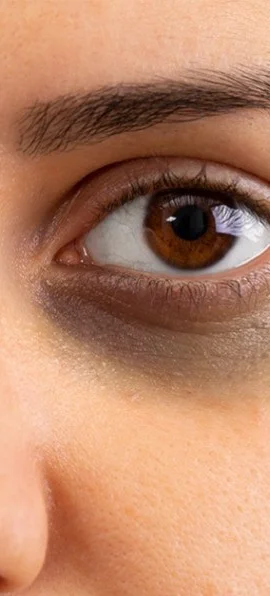Dinacharya is a Sanskrit word made up of ‘dina’ meaning day and ‘acharya’ meaning activity. So dinacharya is the daily routine designed to maintain and connect us to our circadian rhythms or the internal body clock. For millennia, Ayurveda has emphasised the importance of a connection with nature. Western scientists are only now beginning to understand how important it is for the body to stay connected to the rhythms of nature. The disconnection from the circadian rhythms is called chronodisruption and is linked to a host of health concerns, including poor cognitive function, mood and sleep disorders, diabetes, obesity, daytime sleepiness, reduced school performance, substance abuse, heart disease, and some cancers.
Ayurveda tells us that on any given day, two cycles of change exist – the sun cycle and the moon cycle. These cycles connect with the Ayurvedic body type or doshas (vata, pitta or kapha).
Dinacharya makes us understand the best time for our daily routine-waking, exercising, bathing, meditation, prayer, meals, studying, working, relaxing, and sleeping. It is necessary to maintain a healthy body, mind, and soul.
Benefits of dinacharya
- Balances doshas
- Aids in digestion
- Inculcates discipline
- Promotes peace, happiness, and longevity
Daily dosha cycles according to Ayurveda
First cycle (sunrise-sunset)
- 6 am to 10 am – Kapha
- 10 am to 2 am – Pitta
- 2 pm to 6 pm – Vata
Second cycle: (sunset- sunrise)
- 6 pm to 10 pm – Kapha
- 10 pm to 2 am – Pitta
- 2 am to 6 am – Vata
Based on the above dosha cycles is a list of an ideal schedule that needs to be inculcated into our daily routine.
Waking up (In Brahma Muhurta)
A healthy person should get up at Brahma Muhurta – two hours before sunrise. The vata element dominates this time. Being the best time of the day, tuning our body into the frequency of the existent vibes refreshes and energizes us.
Detox
Drinking around two glasses of warm water early in the morning empties the colon, and the bladder and ensures the healthy functioning of the digestive system.
Maintaining hygiene
Triphala or rose water can be used to clean the eyes. Our oral hygiene should include gargling the mouth with water, brushing the teeth and cleaning the tongue to activate the taste buds. Oil pulling or rinsing our mouth with coconut or sesame oil is recommended for healthy teeth and gums.

Exercise & bath:
The best time to exercise is between 6am and 10 am. The body is dominated by the kapha dosha then and is at its strongest physically. Exercising removes sluggishness, ignites the digestive fire, burns fat and promotes peace and joy.
Surya Namaskar, yoga and breathing exercises like pranayama will boost energy levels that will see you through the day. Other alternatives are a brisk walk, a swim, or skipping.
After exercising, a warm water shower or bath is recommended to wash away sweat and grime. Don light, comfortable clothes which feel good on the body.
Pray & meditate
Prayer and worship are our time with God. Meditate for around 20 minutes to observe and balance the prana. It is an important part of the dinacharya as it brings immense peace and contentment and sets the tone for the day.
Breakfast:
Breakfast should be nutritious and wholesome. Eat a small portion but make it big enough to see you through to lunch without a snack. Quantity may vary based on body type.
Lunch:
Lunch should be between 12 and 1 pm. The dominance of the pitta dosha makes it the ideal time to have the biggest meal of the day. Since Pitta is responsible for digestion, it is advised that you stick to this time. Ayurveda recommends that lunch should consist of wholesome food with all six tastes – madhura (sweet), amla (acidic), lavana (salty), katuka (pungent), tikta (bitter) and kashaya (astringent). A short stroll after lunch helps to digest the food.
Avoid a nap after lunch:
Anything more than a nap, post-lunch, should be avoided because it may trigger the accumulation of vitiated kapha which is not a healthy sign. Lying on the left during the nap will keep you fresh and alert. Work or study can go on till supper.
Time for self after sunset:
Sundown is a very special time between day and night. It is the time for evening prayers and meditations in many cultures.
Dinner should be between 6 – 7 pm. It should be lighter than lunch. It should be consumed at least 2- 3 hours prior to bedtime giving the body ample time to digest the food. Sleeping just after dinner on a full stomach may lead to several digestive problems. Always take some time to walk for about ten minutes after dinner. Time post-dinner should be for family and dear ones. Reading and relaxing can also be indulged in during this leisure time.
Bedtime:
The best time to hit the bed is between 9 and 10 pm so that we can get 6 to 7 hours of sleep. It is advisable to massage the soles of our feet and head with oil before going to bed. This will calm the body’s systems and regulate well-being. Drinking Triphala before sleep will aid in digestion, avoid constipation and keep the eyes healthy.
For the first few days, there may be some resistance from the body to accept this routine. However, if we make it a habit there is much to gain as it will bring peace, joy, and longevity.
Make it happen
Studies and research have shown that any new activity carried out judiciously for 21 days naturally becomes part of our routine. There are exceptions in following dinacharya according to one’s needs and capability. Very young children, the old and people with diseases can desist from following this routine. Medical advice is necessary if you are under medication.
Based on inputs from Dr. Ganesh Puttur, Sri Sri Ayurveda Hospital, The Art of Living




















